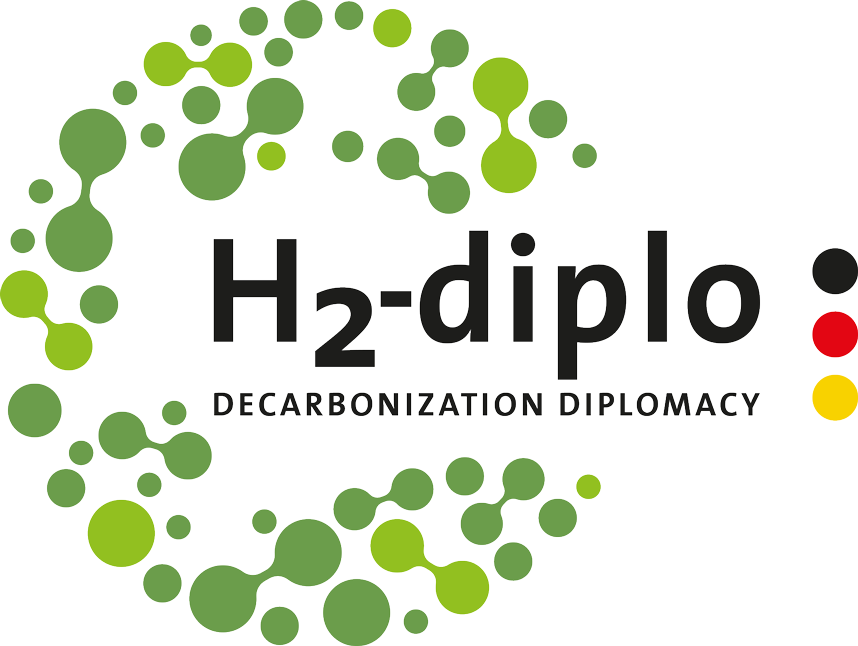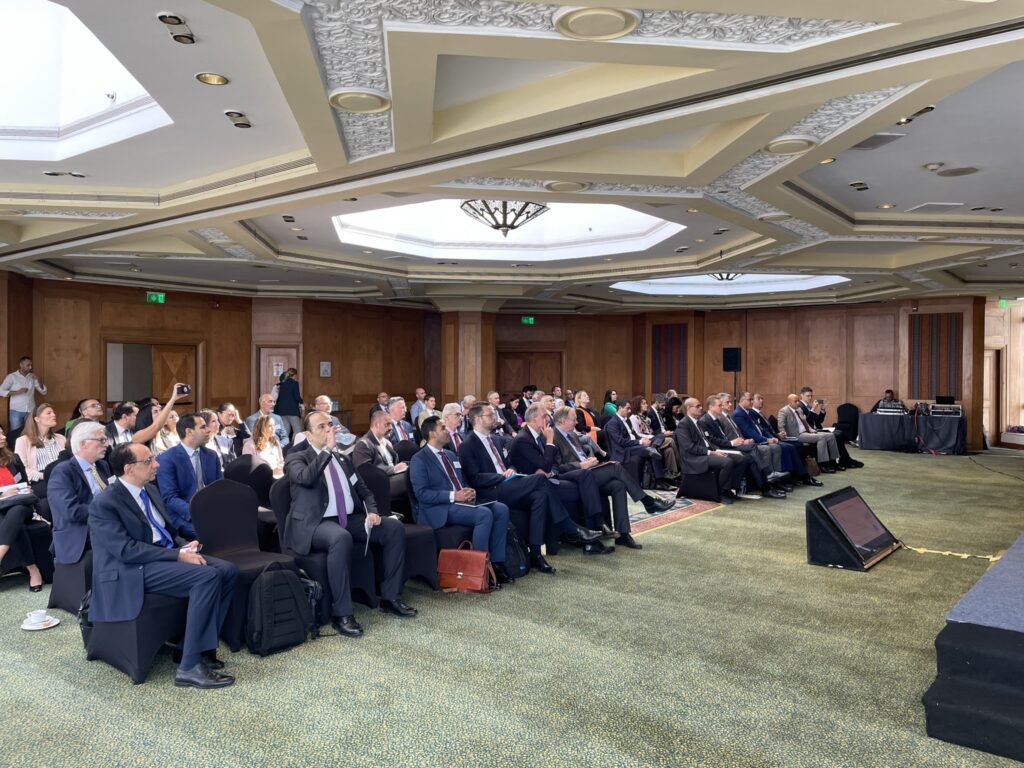On 31 October 2023, a pivotal event on green shipping was hosted by the German Ambassy in Egypt and H2-diplo in cooperation with the Ministry of Petroleum, the Suez Canal Authority and the Suez Canal Economic Zone. The event, held in the strategically significant Suez Canal region, showcased Egypt’s ambition to lead in the global transition to a hydrogen-based economy.
The symposium marked the launch of the study “Towards a Green Shipping Gateway – Establishing a Green Hydrogen Economy in Egypt,” led by the Institute of Energy Economics at the University of Cologne (EWI) in partnership with GIZ’s PtX-Hub. You can find the study here: Towards a green shipping gateway – Establishing a green hydrogen economy in Egypt (h2diplo.de).
In his opening speech H.E. Frank Hartmann, the German Ambassador to Egypt, praised the study and the strong cooperation between Egypt and Germany. This was followed by two engaging panel discussions.
In the first on “The Geopolitical Dimensions of Sustainable Hydrogen Shipping Globally and in Egypt”, experts delved into the intersection of green shipping with global trade dynamics and climate change mitigation strategies. They emphasized Egypt’s pivotal role in shaping international energy geopolitics, particularly through leveraging its strategic position at the Suez Canal.
The second panel on “Fueling Egypt’s Future: Charting the Course for Sustainable Hydrogen Shipping” explored the economic opportunities inherent in Egypt’s potential as a hub for green shipping technologies. Stakeholders from finance, industry, and regulatory bodies outlined concrete steps necessary to establish a sustainable hydrogen ecosystem in the region.
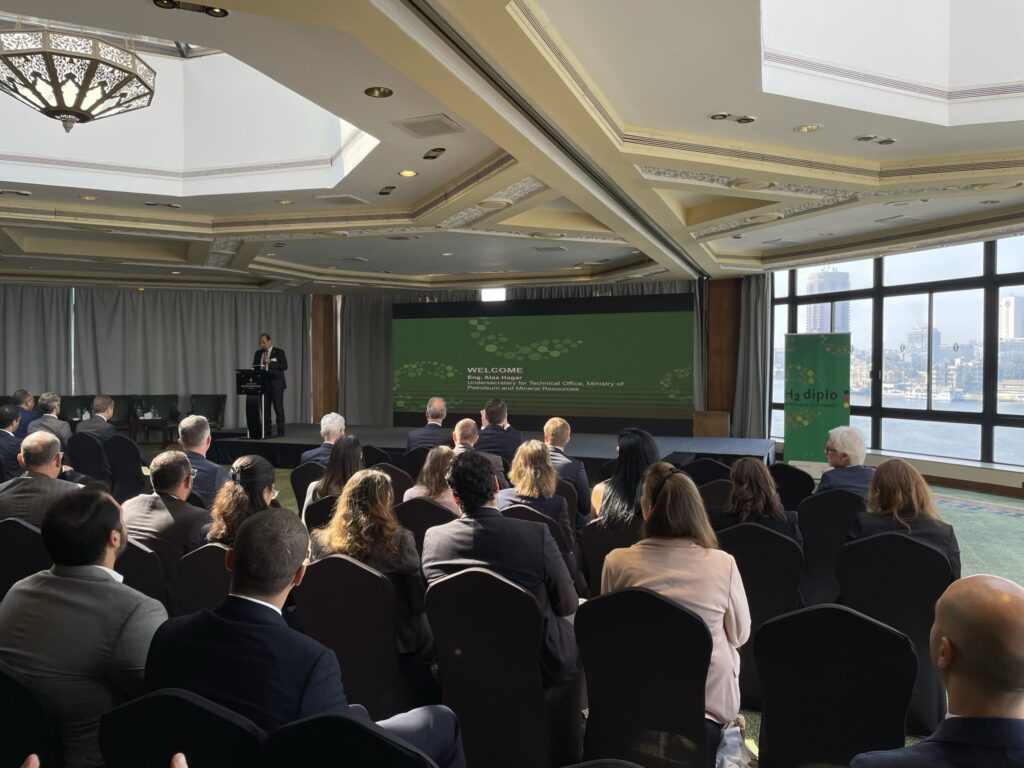
Distinguished panelists from Egypt, Germany, and the EU contributed valuable insights:
- Eng. Alaa Hagar, Undersecretary for Technical Office, Ministry of Petroleum and Mineral Resources, Egypt
- Dr. Ramy Moussa, Head of Egyptian-German Joint Project for Renewable Energy, Ministry of Electricity and Renewable Energy, Egypt
- H. E. Christian Berger, European Union Ambassador to Egypt
- DG Oliver Rentschler, Director-General for Climate Diplomacy and Geo-Economics, German Federal Foreign Office
- Mr. Ayman Soliman, CEO, Sovereign Fund of Egypt
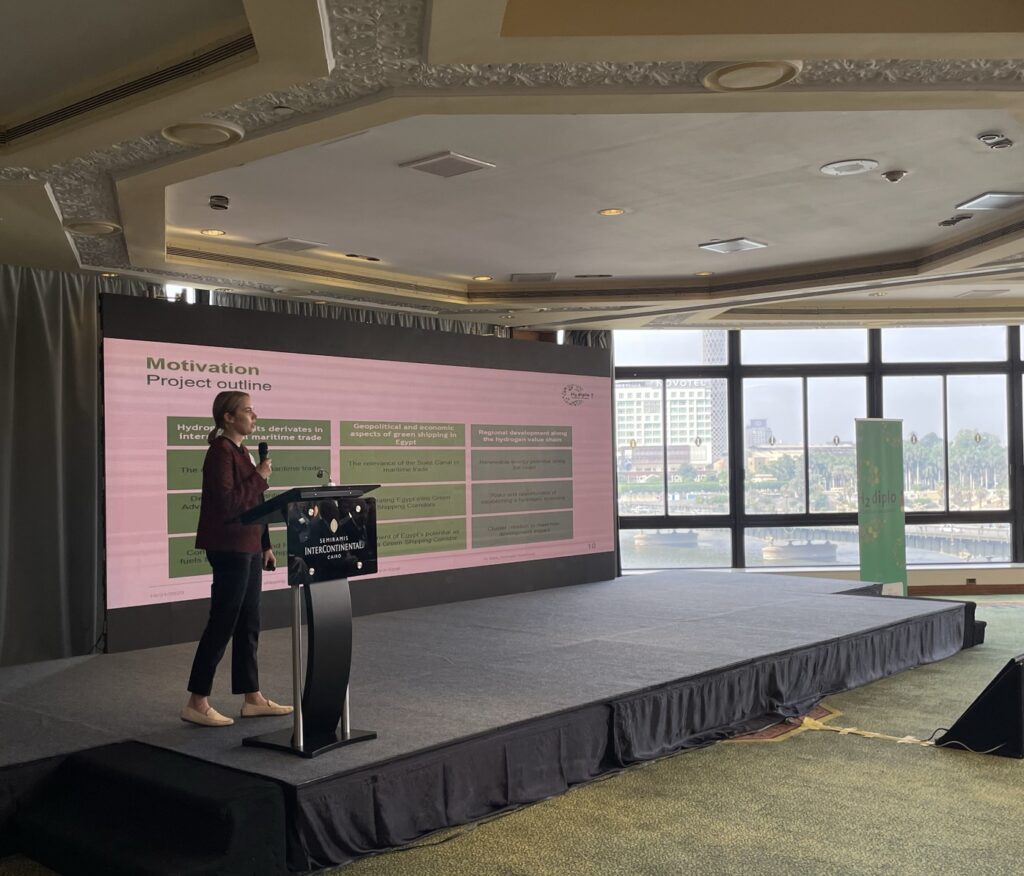
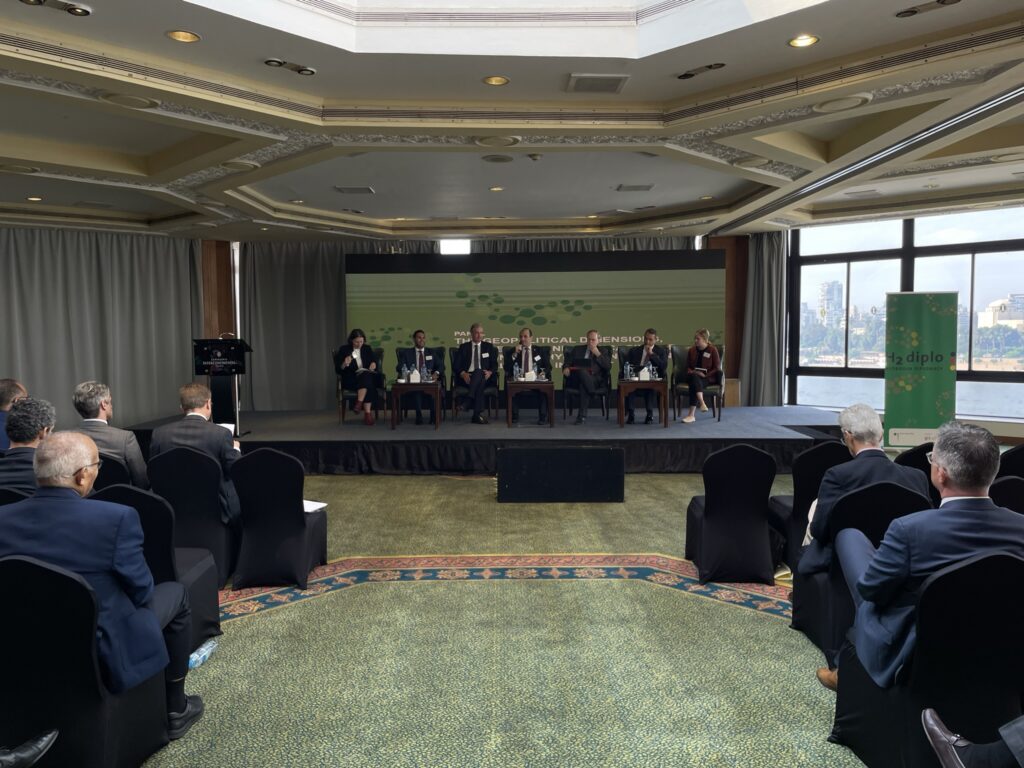
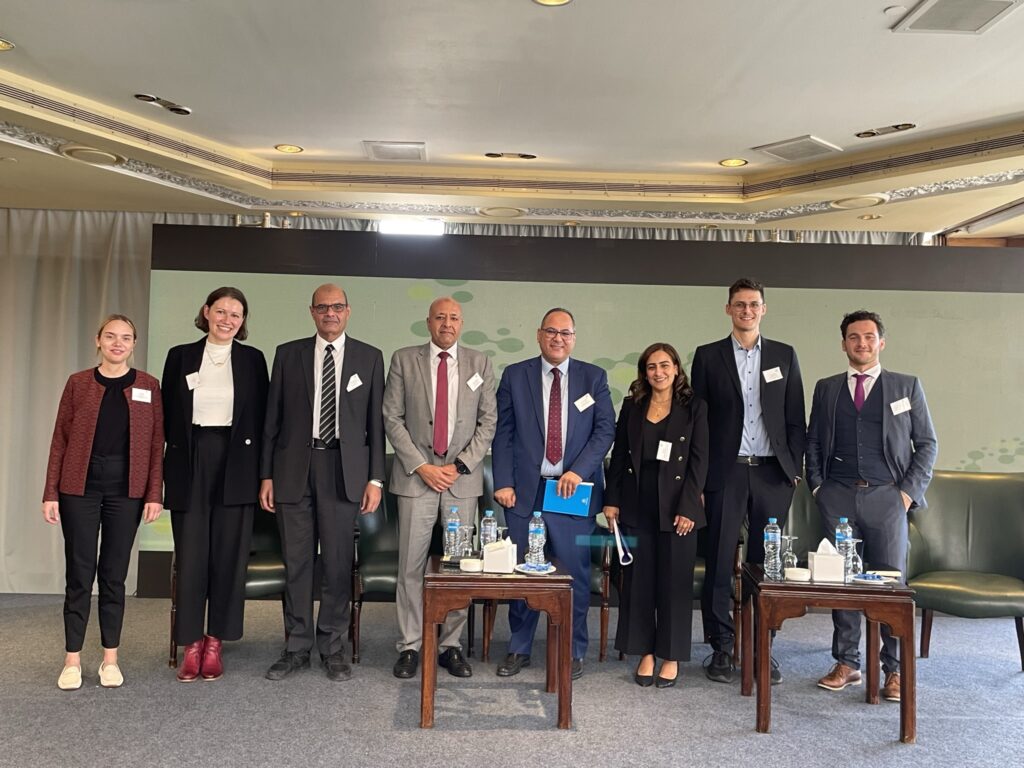
This symposium, held ahead of COP28, emphasized Egypt’s strategic imperative to explore decarbonized maritime transport options, leveraging the Suez Canal’s central role in global trade. The symposium was able to use the momentum towards green shipping, to foster synergies and identify joint market opportunities in sustainable shipping infrastructure and routes in Egypt.
